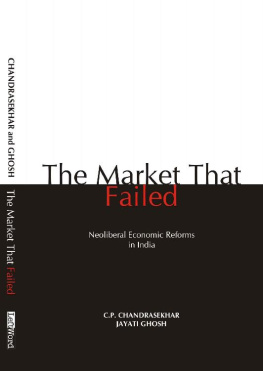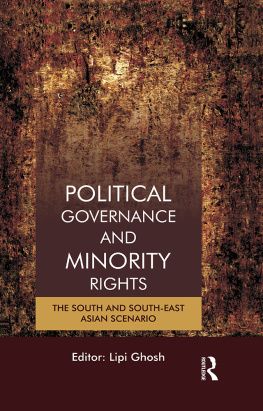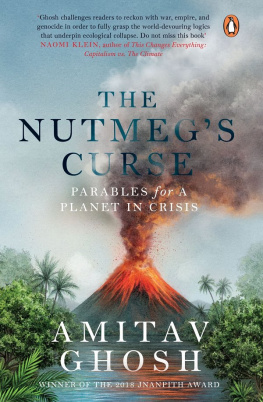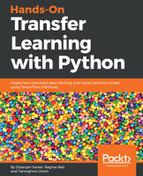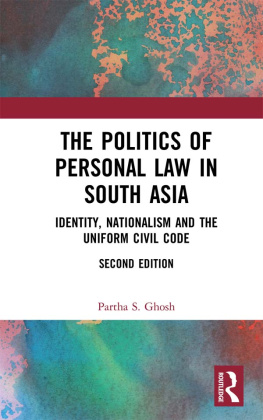

CRISIS AS CONQUEST: LEARNING FROM EAST ASIA
Jayati Ghosh is currently Associate Professor of Economics at the Centre for Economic Studies and Planning, Jawaharlal Nehru University, where she has taught for more than a decade. She was earlier a Research Fellow at Darwin College, University of Cambridge, England, a Consultant at the Planning Commission of the Government of India, and Visiting Professor at Tufts University in the US. She has written extensively in academic journals and books as well as in popular journals. She has two regular columns: Preoccupations in Frontline magazine deals with current affairs, while Macroscan (written jointly with C.P. Chandrasekhar) in the newspaper Business Line is concerned with economic issues.
C.P. Chandrasekhar is currently Professor at the Centre for Economic Studies and Planning, Jawaharlal Nehru University. Besides teaching at JNU since 1979, he has also worked as Research Associate at the Centre for Development Studies, Trivandrum, and Visiting Lecturer, School of Oriental and African Studies, University of London. His areas of interest include industrialisation, development planning and the experience with stabilisation and structural adjustment in developing countries. He is a regular columnist for Frontline , a fortnightly newsmagazine, and Business Line, a financial daily.
TRACTS FOR THE TIMES
Editorial Board
S. Gopal Romila Thapar
Editor
Neeladri Bhattacharya
FORTHCOMING IN THE SERIES
Hindi Nationalism
Alok Rai
People, Parks and Wildlife
Mahesh Rangarajan, Vasant Saberwal and Ashish Kothari
TRACTS FOR THE TIMES / 12
Crisis as Conquest: Learning from East Asia
JAYATI GHOSH
C.P. CHANDRASEKHAR
For our entire range of books please use search strings " Orient BlackSwan ", " Universities Press India " and " Permanent Black " in store.
Crisis as Conquest Learning from East Asia
Orient Blackswan Private Limited
Registered Office
3-6-752 Himayatnagar, Hyderabad 500 029 (A.P.), INDIA
e-mail:
Other Offices
Bangalore, Bhopal, Bhubaneshwar, Chennai,
Ernakulam, Guwahati, Hyderabad, Jaipur, Kolkata,
Lucknow, Mumbai, New Delhi, Noida, Patna
Orient Blackswan Private Limited 2001
First published 2001
eISBN 978-81-250-5334-7
e-edition:First Published 2017
ePUB Conversion: .
All rights reserved. No part of this publication may be reproduced, distributed, or transmitted in any form or by any means, including photocopying, recording, or other electronic or mechanical methods, without the prior written permission of the publisher, except in the case of brief quotations embodied in critical reviews and certain other noncommercial uses permitted by copyright law. For permission requests write to the publisher.
Contents
Editorial Preface
TRACTS FOR THE TIMES attempts to provide meaningful information, critical perspectives, and theoretical reflections on various themes of contemporary concern. The tracts seek to deepen our knowledge of crucial issues, query our common sense, re-think old concepts and framing ideas, and analyse the social and economic problems we confront.
This tract looks at East Asia to reflect on the problems and prospects of different strategies of economic growth in developing countries. In the early 1990s, the experience of the East Asian economies was widely celebrated as the model to be emulated by all developing countries of the world. For over a decade, the four 'Tigers'South Korea, Taiwan, Singapore and Hong Konghad recorded phenomenal rates of growth of GDP, exceptionally high domestic savings and investment rates, and a rapid increase of exports. Expansion of national output and employment was accompanied by a marked improvement in standards of living. At a time when economic growth rates in western developed countries had slowed, and socialism was in crisis, the development in East Asia seemed miraculous. To those critical of socialism and planned economy, it provided reassuring evidence that rapid development in backward countries was possible without socialism, that globalisation and integration to world capitalism did not mean underdevelopment. But the euphoria of the early 1990s suddenly evaporated as crisis hit these economies in 1997, leading to a fall in exports, a drop in output and large-scale bankruptcies. As the crisis persisted, the robust economies suddenly seemed unbelievably fragile.
To what extent then, can the East Asian Miracle show us the path of development? To answer this question, this tract explores the inter-linked histories of the boom and crisis within the eastern economies. It shows that the present crises need to be understood in terms of the very nature of their earlier economic growth. These economies industrialised after the Second World War, a time of import substitution, when their manufacturing exports increased, and East Asia's share in the international trade in manufactures expanded. Powered by a boom in exports and sheltered behind protectionist walls, the rates of GDP growth averaged over 7 per cent in the 1980s, with growth rates of manufactures reaching a dizzy 12 per cent in countries like South Korea. This pattern of growth created its own barriers to expansion. Through a careful analysis of these constraints, the tract suggests that a strategy of rapid industrialisation propelled by an increasing share of world exports cannot be sustained indefinitely. The very success of that strategy produced countervailing forces that led to a deceleration of exports, which in turn affected the basis of industrialisation.
As exports slackened, and the eastern countries searched for alternate sources of growth, financial liberalisation appeared to be a solution to problems. At an international level, by the 1970s, the post Second World War regime of financial regulation had given way to financial liberalisation that increased the flexibility of banking and financial institutions. The emergence of unregulated financial institutions, like hedge funds, and increased liquidity led to enormous flows of capital into high risk, speculative investments that promised high rates of returns. When the eastern countries liberalised, international capital flooded the market. Individual financial agents within these economies, feeling the constraints of the domestic capital market, now had easy access to loans for risky and speculative business. This tract shows how the working of the financial system transformed every internal problem into a crisis of investor confidence and massive capital outflows, transmitting crises across the region like a contagion. It argues powerfully that macroeconomic calculations become impossible once the country is opened up to completely free capital flows.
When crisis hit the East Asian economies, the IMF response was predictable. It suggested control over domestic credit, reduction of government expenditure, deregulation and liberalisation, assuming, as always, that an open market and liberalisation would reverse capital flows and resolve all problems. Premised on a misreading of the crisis, the IMF strategy aggravated the situation. High interest rates added to the problems of the banks and to the sickness of the indebted economy, undermining investor confidence in a quick recovery. In fact, the IMF itself was soon forced to reconsider its analysis and criticize its policies.





